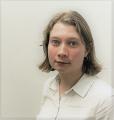
A scientist who started her career with a degree from the University of East Anglia is now at the forefront of the race to find a Covid-19 vaccine.

Sarah Gilbert, professor of vaccinology at Oxford University, is currently leading a team of scientists, who are some of the first in the world to start human trials of a Covid-19 vaccine.
On Tuesday, the work she and her team have been doing caught national attention, when it was one of two UK vaccine projects to receive millions of pounds in Government funding.
But the scientist who is now leading the way in the global search of a Covid-19 vaccine began her scientific career in Norwich.
Professor Gilbert studied for her undergraduate degree (BSc) in Biological Science at UEA between 1980 and 1983 before moving to the University of Hull for further study.
She has been specialising in making and testing malaria and influenza vaccines for more than a decade.
Vice-Chancellor of the UEA, Professor David Richardson, who is himself a Biologist and former Dean of Faculty of Science, said: “Universities are at the forefront of the fight against Covid-19, with the rapid development of potential vaccines a critical element of successfully beating the disease.
“I am especially proud that a former UEA student is playing such a prominent role in this work.
“We are all wishing Professor Gilbert and her team at Oxford University success with the science.”
The Oxford University trials began on Thursday morning with two people being vaccinated, one with the potential Covid-19 vaccine and a second with another vaccine which will be used as a comparison.
Speaking to BBC News of the eve of the start of the trials, Professor Gilbert said: “We just start with two people on the first day, to make sure that everything is well with them, and also that all the procedures are working for the trial and that we are ready to move on to larger numbers.”
She added that six more volunteers would be given doses on Saturday, moving to larger numbers on Monday.
If the trials go well the team hopes to have at least a million doses ready in September.



Comments: Our rules
We want our comments to be a lively and valuable part of our community - a place where readers can debate and engage with the most important local issues. The ability to comment on our stories is a privilege, not a right, however, and that privilege may be withdrawn if it is abused or misused.
Please report any comments that break our rules.
Read the rules here